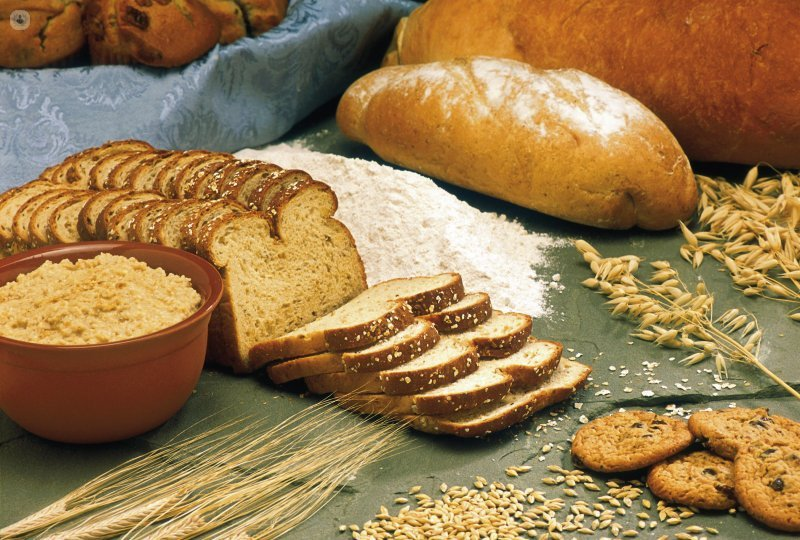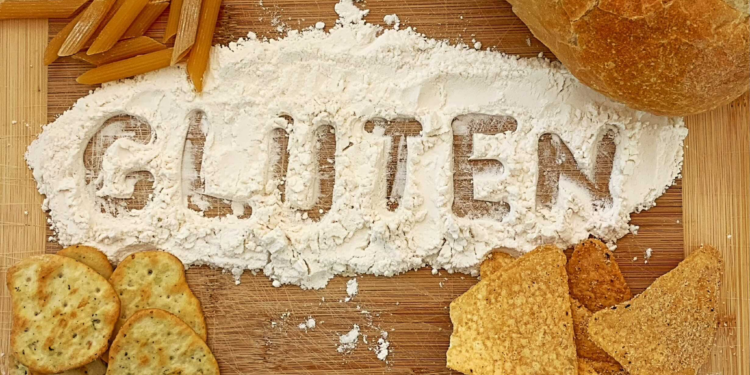The word ‘gluten’ may be very strange to many but it is found in most food we consume not just in Nigeria but in the world. Take a look at bread for example and how stretchy it is, then you have found a food that contains gluten. Gluten is a kind of protein found in wheat, rye, and Barley based food and products.
Gluten is often added to foods as a thickening agent – as its name implies, “a glue”. It has a stretchy quality to it and is the ingredient that gives bread and baked goods their stretchy texture. Without gluten, the dough would rip easily. Many processed doughs use gluten to add flavor, improve texture, and create desired baking taste.
Importance of Gluten in food
According to scientific research, gluten is not bad for the health of the average person. The benefit of gluten is most often associated with wheat. This is because eating whole grain wheat has been linked to a lower risk of heart disease, stroke, and diabetes, gluten in itself does not provide any essential nutrients to the body.
Why Gluten may be bad for your health
Though gluten is harmless for most people, however, some people experience certain adverse reactions and health risks when eating foods containing gluten. Once these reactions occur, it is very important that such a person stop the consumption of gluten and eat a gluten-free diet as long as the latter contains essential nutrients that the body needs. While some of these reactions are autoimmune diseases due to gluten People with gluten sensitivity experience gastrointestinal distress – ranging from diarrhea, gas and bloating , others are allergies. However, in both cases, ingestion of gluten should be stopped.
Gluten sensitivity
This is also called Non-celiac gluten sensitivity (NCGS). NCGS is an intolerance that occurs in a person that doesn’t have celiac disease but still has intestinal discomfort when eating gluten and other celiac disease symptoms. People with gluten sensitivity experience gastrointestinal distress – ranging from diarrhea, gas and bloating.
Gut Inflammation
The gut is the body’s digestive tract – the part of the body that is responsible for digestion. This includes the mouth, oesopaghus, stomach and the intestines. Your gut also contains healthy bacteria that breaks down food and hormones that affect your appetite. Gluten can mess up the gut, causing gut inflammation leading to issues such as leaky guts, Crohn’s disease, Ulcerative Colitis, constipation and irritable bowel symptoms. Other gut issues include unexplained nausea, fatigue, irregular periods, acne, Rectal bleeding/bloody stools, etc.
Celiac Disease
This is the most famous problem with gluten (wheat). Celiac disease is an autoimmune disease caused by eating food containing gluten no matter how little the amount of gluten. This occurs when gluten triggers the immune system to attack the small intestine. Continuous ingestion of gluten will ultimately cause damage to the intestine, resulting in the digestive system’s inability to absorb vitamins and minerals. Gluten also causes diarrhea, constipation, heartburn, pain, bloating, gas, stools that smell awful, sometimes vomiting. Research shows that people with celiac disease also have a slightly higher risk of developing arthritis, osteoporosis, anemia, infertility, nerve disorders, neurological problems, and in rare cases cancer. People with Celiac disease are medically advised to eat strictly, gluten-free food.
Dermatitis Herpetiformis (DH)
Dermatitis herpetiformis is a gluten-related skin problem. It occurs when gluten triggers a severe persistent red itchy skin rash that may produce blisters and bumps, on the skin area of the elbows, knees, head, buttocks, and torso. Most people with dermatitis herpetiformis will also experience the same small intestinal damage as those with celiac disease. Although people with celiac disease may have DH, the reverse is not always true. Once diagnosed, however, people with DH are usually highly motivated to stick with a gluten-free diet to steer clear of these painful rashes.
Wheat allergy
Wheat contains gluten and some other proteins – albumin, gliadin, globulin, which can result in the body overreacting when wheat is consumed. Symptoms range from mild to severe swelling or itching of the mouth or throat, hives, itchy eyes, shortness of breath, nausea, diarrhea, cramps, and anaphylaxis. In adults, wheat allergies can only be cured by avoiding wheat. However, children may outgrow these allergies to wheat.
Food Containing Gluten

Gluten is found in many common foods such as bread, dough, pizza, pasta, cereal, biscuits, pancakes and waffles, and processed flours such as semo, wheat, etc. Drinks made from barley such as beer, premade coffee drinks
drink mixes, commercial chocolate milk, etc.
It is important to check the ingredient of a food product to see if it is gluten content before consuming it.
Gluten Free Food to Eat
- Fruits and vegetables are naturally gluten-free, as long as they are not in their processed form. More so, in consuming vegetables. Consume more non-starchy vegetables. These include broccoli, cauliflower, pepper, mushrooms, zucchini, spinach, green beans, etc
- Legumes: Beans and lentils – kidney beans, peas, black beans are gluten-free, which is why they’re commonly used to make pasta alternatives and other gluten-free products.
- Gluten-free grains and grain products: sorghum, oats, millet, rice
- Tubers: Yam, Cassava, potatoes, cocoyam, etc
- Nuts and seeds are gluten-free and provide a nutrient-rich source of fat. Cashew, groundnut, almond nut, hazelnuts, sunflower seeds, are some examples of these.
- Healthy Fats and Oil: full fat yogurt, cheese, olive oil, avocado oil
- Certain Spices and Seasonings: This includes sauerkraut (fermented cabbage), Locust beans, most dried herbs and spices – ginger, turmeric, etc., apple cider vinegar, etc.
- Natural Flour: Plantain flour, yam flour, cassava flour (garri), potato flour, etc.
- Nigerian Soups
Take Away
Gluten consumption isn’t that bad but eliminating it isn’t equally bad. When eliminating gluten from your diet, you should be mindful of what you replace it with.

Discussion about this post